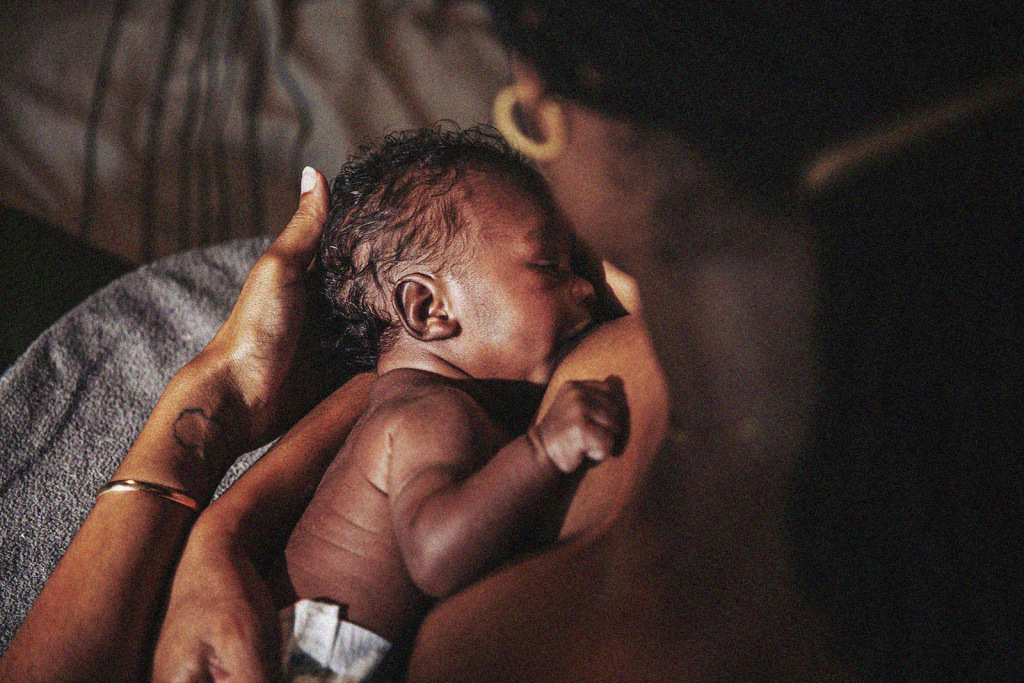Is My Baby Getting Enough Breast Milk?
Signs your baby is getting enough milk
One of the most common concerns for new moms is providing enough milk for their babies. Thankfully, although many women fear they’re not producing enough milk, undersupply is actually extremely uncommon.
Keep in mind that your baby won’t drink that much milk at first—with the small size of their growing tummies, newborns only need about a tablespoon of colostrum at a time. Still, it’s normal for babies to lose a bit of weight in the days after delivery. Just make sure you’re nursing at least eight to 10 times within a 24-hour period. Not only will this get them the nutrient-rich colostrum, it will also help stimulate milk production.
Still, peace of mind with a newborn is everything. So while you might be tempted to use bottles in the early days to know exactly how much your baby is getting, there are other ways to put your mind at ease.
Here’s how to tell if your baby is getting enough breast milk.
Diaper Duty
The number one sign that your baby is getting enough milk comes in their diapers. How many times they pee and poo in a day can tell you if they’re well-fed or not. Newborns under six weeks should have six or more wet diapers and three to four dirty diapers per day by the time they are four days old. Urine should appear pale and have only a very mild odor. After baby has had a chance to poop out meconium, which is a thick, tarry substance that lines your baby’s intestines during pregnancy, their stools will transition to newborn poop, which is yellow, loose and watery. If your baby does not have consistent wet diapers, call your pediatrician or IBCLC right away.
Weight Gain
One obvious sign of a baby getting enough—or too little—milk is their weight. Babies typically lose a few ounces in the first week after birth—up to 10 percent of their birth weight—but should gain it back in 10 days to two weeks. Having a weighted feed done by a lactation consultant is a surefire way to know exactly how much they’re eating. An IBCLC will weigh your baby before eating, and then again right after. This is a great tool for new parents to confirm that all is well, especially in those early days.
If you’re still concerned about your baby’s weight gain, you can buy your own scale to do this at home if you’re looking for that added peace of mind. In the first four months, a 5.5- to 8.5-ounce weight gain per week is normal. Since babies tend to grow in spurts rather than all at once, start weighing them about five days after birth and then once a week following. If you notice unusual changes, such as continued weight loss after the first two weeks, talk to your IBCLC or doctor.
How can I tell if my baby is hungry or wants comfort?
Your little one will let you know when they’re hungry. It’s time for a nursing session if your baby:
- Moves fists to mouth or sucks on hands
- Looks for your breast while being held
- Becomes more alert and active
- Opens and closes mouth frequently
While crying is a sign of hunger, it’s a very late sign and indicates distress and frustration. It may also be more difficult to start breastfeeding and get a good latch when your baby is fussing, so watch out for earlier hunger cues and respond as soon as possible to make the experience better for you both. If your baby does reach the crying stage, calm them down first to get a better latch. Once full, your baby’s body language will relax and they’ll fall off your breast and turn from your nipple. At this point, you can have some cuddle time or burp your baby.
What are some signs my baby isn’t getting enough breast milk?
- If your baby continues to lose weight after the first few weeks. By 10 to 14 days old, your baby should have regained their birth weight. If this doesn’t happen, contact your healthcare provider.
- If your baby is unusually lethargic and won’t wake up for feedings. Babies sleep a lot—anywhere from sixteen to eighteen hours a day—but they also need to eat a lot and should be eager to nurse when you wake them. Sleeping for more than four hours at a time or having low energy levels when awake may be signs of an underfed baby.
- If your baby doesn’t have regular bowel movements. Your baby should have three to four bowel movements per day within the first week following birth. Also keep an eye on their urine: very yellow or dark shades can be a sign of dehydration.
Contact an IBCLC
If you are concerned that your baby isn’t getting enough breast milk, contact an IBCLC. These certified lactation professionals will determine if latching issues or your breastfeeding position are contributing to poor infant weight gain, perform a weighted feed to determine exactly how much breast milk your little one takes in during a session and answer any other questions you may have. Breastfeeding is an essential process, and you can get multiple visits with an IBCLC covered by your insurance, so set up an appointment today.



